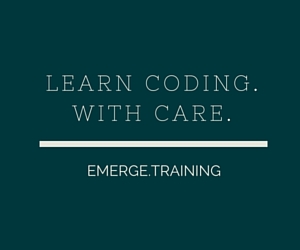When I was somewhere around 7 or 8 years old, my father brought home a computer and introduced me to it. It would be an understatement to say that this had a profound effect on the course of my future life. First he borrowed a Commodore 64 from his friend, then later he bought us a shiny new Amiga 500. Being a kid, I was of course immediately hooked to playing the games. But since we shared the computer, I also saw my dad doing his stuff, and I remember seeing these "beautiful graphics" on the screen, which he explained to me were "sine curves" (he was a math teacher by profession). I didn't know what a "sine curve" was, but it looked amazing to me. And no, he didn't "download an app" to do that, as many would probably do nowadays. He programmed a simple plotting program using the Basic programming language. And then he taught me how to draw using Basic. Like draw a circle of this radius in these coordinates, then a line from these coordinates to these coordinates, etc. While I didn't really know what a radius was, I did know what a circle was, and before I knew it, I was writing code to draw a stick man. It really wasn't that big a deal for me, and I really didn't think that I needed to graduate with a Computer Science degree first, or that I would need to be specifically trained for this by some professional organization. And I didn't know it was called \"Basic\" either. It was just simply cool to make the machine do what I wanted it to do.
Eqela was first launched in Mobile World Congress 2012 in Barcelona. Since the MWC is starting again today, it's a good time to look back to how it all went so far.
As promised before, I will be saying some more things about the different approaches to cross platform development. As we know, the current state of the industry is happy in a way that we have a lot of competing operating systems and software development platforms. It is sad only because it is somewhat difficult for software developers to cope with a lot of different platforms, but this should not be a cause for permanent concern: Cross platform development is supposed to be the key to solving the issue. And when I say cross platform development, I am talking about having a single codebase that can be used to develop applications for different platforms.
Now that the Blackberry 10 platform is "out", all developers who have caught up to the hype are probably pondering if they should take some action with regards to developing for this new platform. I believe the practical considerations going through the minds of potential future Blackberry 10 developers were well crystallized on the SGEntrepreneurs site in the article titled "Should you develop for the Blackberry 10?".
The other night I noticed an intriguing blog post in my Twitter feed titled "Why founders shouldn't be the developers". In its context, this is obviously referring to founders of technology companies, and is of course so very wrong! How can you start a technology company without those who are experts in the technology? So I clicked on the link, mainly because since I absolutely do not agree with the statement, I was looking to see what it was that I was disagreeing with. I found out that while I really cannot agree with the title, the article does indeed capture very vividly the spectacularly painful life and challenges of a technical founder of a technology company. While I was reading, I was preparing to post a comment to explain my solution to the problem, but in the very end of the article, the author wrote it down himself ..
Until recently, the world was a much simpler place for a programmer. Not so long ago, almost the whole world was just using Windows for all the computing requirements and, as a developer, to ensure that your programs would have a maximum audience, you would just need to develop for Windows, or at least make sure your program would work on Windows or somehow together with Windows. Then, when the web came along, many of us shifted to developing web apps, and once again, we could rest assured that everyone can access and use our application, as long as we followed the web standards (and as long as we remembered to take into account the IE "specialties").
I remember sitting through a session in the Mobile Asia Congress last year, where a Facebook engineer proudly shared how they had managed to handle their cross platform development strategy in a "write once, run everywhere" manner. I remember him explaining how they had developed a HTML/native hybrid (mostly HTML) solution approach where they streamed the majority of the app from the server as HTML, then used native code where they felt like they had to. More or less, the same presentation was apparently given by other Facebook representatives, for example this one.
Henri Bergius, a free software guy and a Maemo/MeeGo enthusiast, writes on his blog: "... I've been appalled of the direction this "Post-PC era" is taking us. Through patent wars and locked-down app stores, the world of mobile software is becoming a power play where some win big and everybody else loses. ... It is interesting that we software developers are now driving ourselves to a world full of middlemen. A world where we suddenly have to ask for a permission to do something new. ... In a world where everything must go through the rules and regulations of an app store without any oversight we, the developers, will suddenly be in the same abused stage as artists are with their labels. We take all the risk and all the effort on building software for our users. The middleman then can invalidate all our hard work by arbitrarily making it impossible for their ecosystem to run the app. And even if they do accept the software, they'll take a hefty cut of the proceeds. ... How can this make sense to an independent developer?"
When we first came up with the concept of a product that ended up being Eqela, I remember saying something that came back to me yesterday. I distinctly remember the setting, as we were crossing Acacia Avenue near our Philippine office inside the car, I remember explaining the concept, how it works, and how we would present it to people. Then I said: "When we're done .. Everybody is going to want to have this". Not just because it's cool. But because it's really useful! We are application developers ourselves, and we conceptualized a product that would really help us. I figured that others would appreciate it too.
Now that Eqela is out and available, I will most probably keep posting a lot of things related to that for a while. In line with that thought, here's the first one: Eqela is a really good way to do things that previously required developing using the C (or C++) language.







